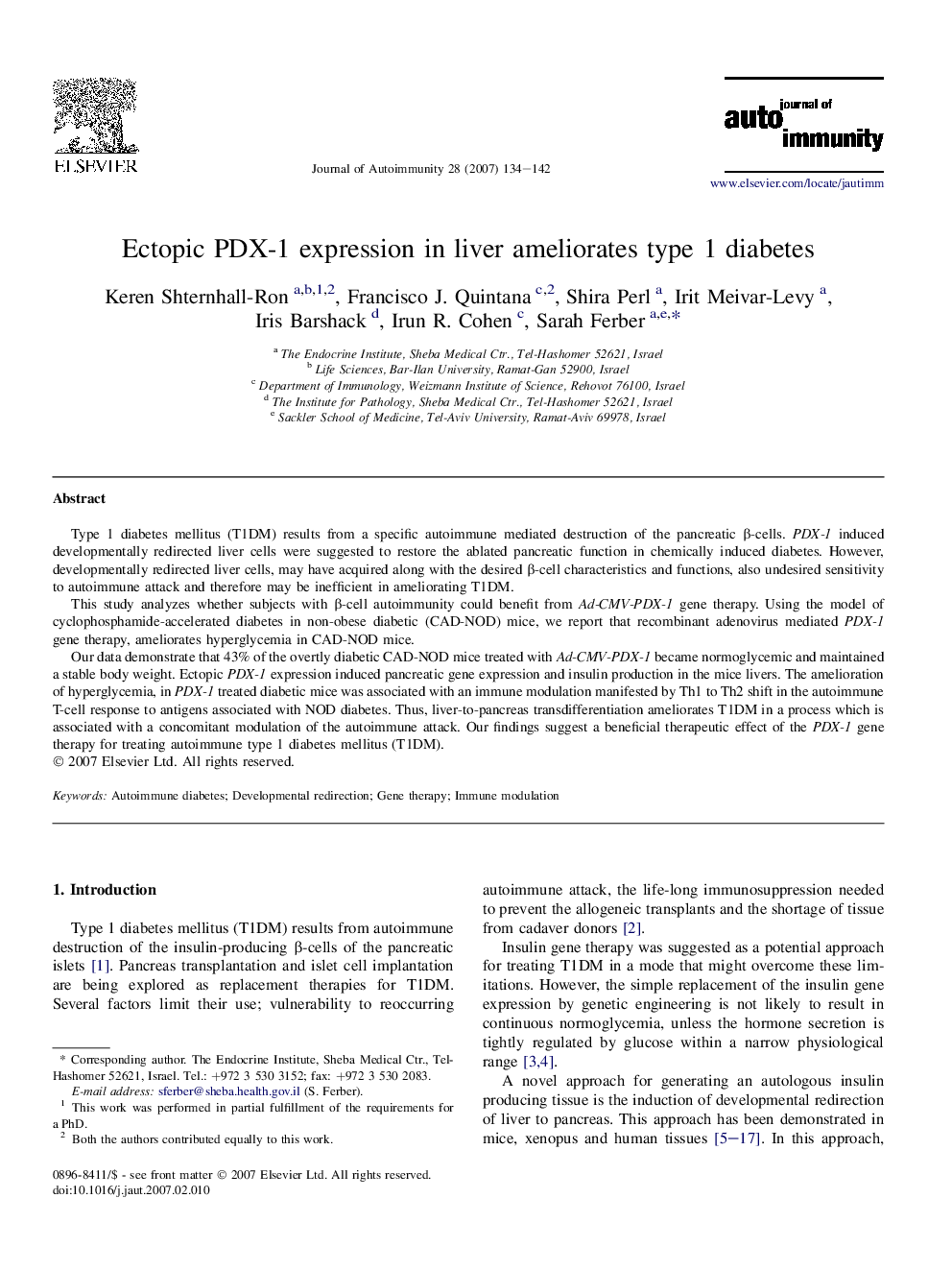| Article ID | Journal | Published Year | Pages | File Type |
|---|---|---|---|---|
| 3368464 | Journal of Autoimmunity | 2007 | 9 Pages |
Type 1 diabetes mellitus (T1DM) results from a specific autoimmune mediated destruction of the pancreatic β-cells. PDX-1 induced developmentally redirected liver cells were suggested to restore the ablated pancreatic function in chemically induced diabetes. However, developmentally redirected liver cells, may have acquired along with the desired β-cell characteristics and functions, also undesired sensitivity to autoimmune attack and therefore may be inefficient in ameliorating T1DM.This study analyzes whether subjects with β-cell autoimmunity could benefit from Ad-CMV-PDX-1 gene therapy. Using the model of cyclophosphamide-accelerated diabetes in non-obese diabetic (CAD-NOD) mice, we report that recombinant adenovirus mediated PDX-1 gene therapy, ameliorates hyperglycemia in CAD-NOD mice.Our data demonstrate that 43% of the overtly diabetic CAD-NOD mice treated with Ad-CMV-PDX-1 became normoglycemic and maintained a stable body weight. Ectopic PDX-1 expression induced pancreatic gene expression and insulin production in the mice livers. The amelioration of hyperglycemia, in PDX-1 treated diabetic mice was associated with an immune modulation manifested by Th1 to Th2 shift in the autoimmune T-cell response to antigens associated with NOD diabetes. Thus, liver-to-pancreas transdifferentiation ameliorates T1DM in a process which is associated with a concomitant modulation of the autoimmune attack. Our findings suggest a beneficial therapeutic effect of the PDX-1 gene therapy for treating autoimmune type 1 diabetes mellitus (T1DM).
